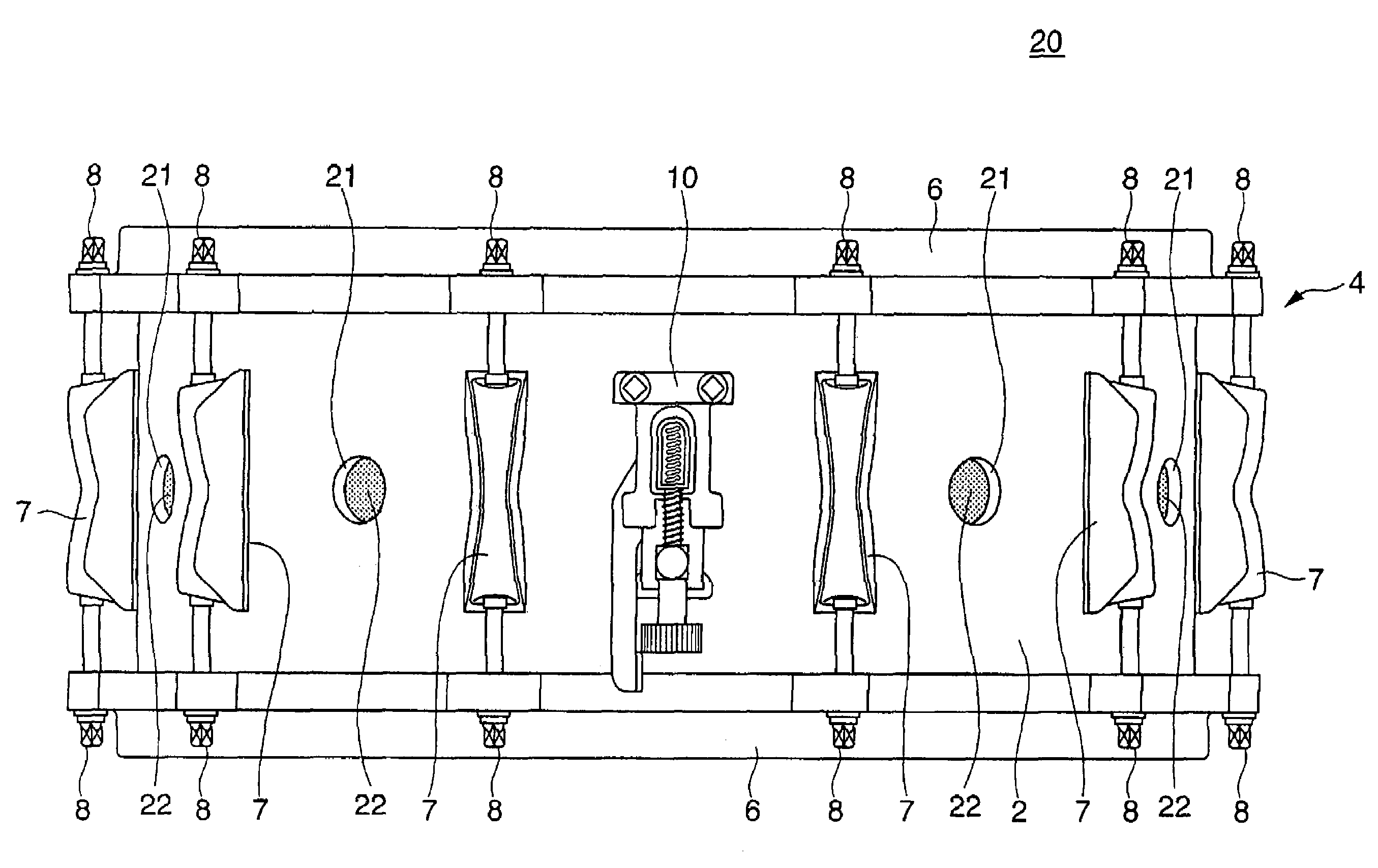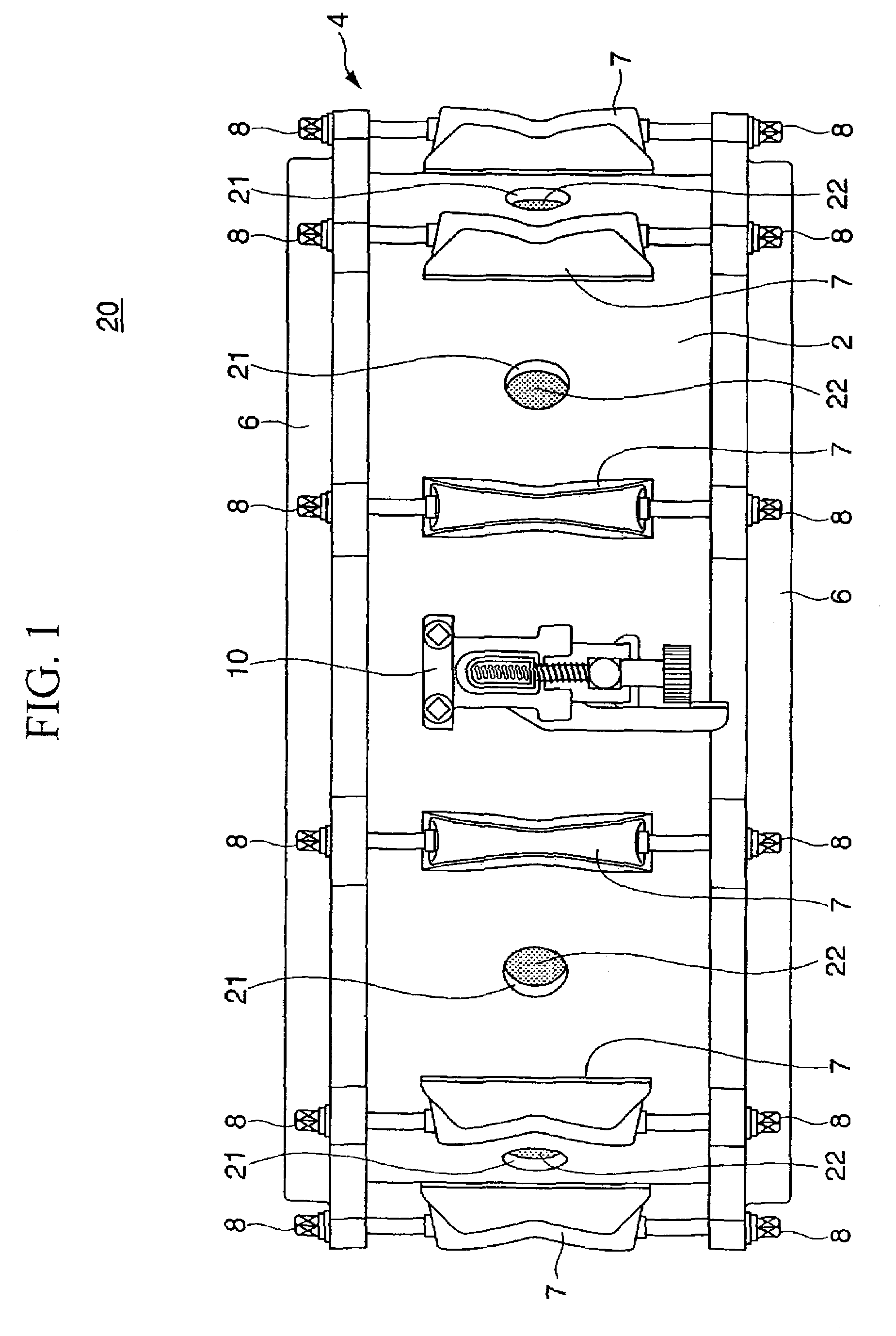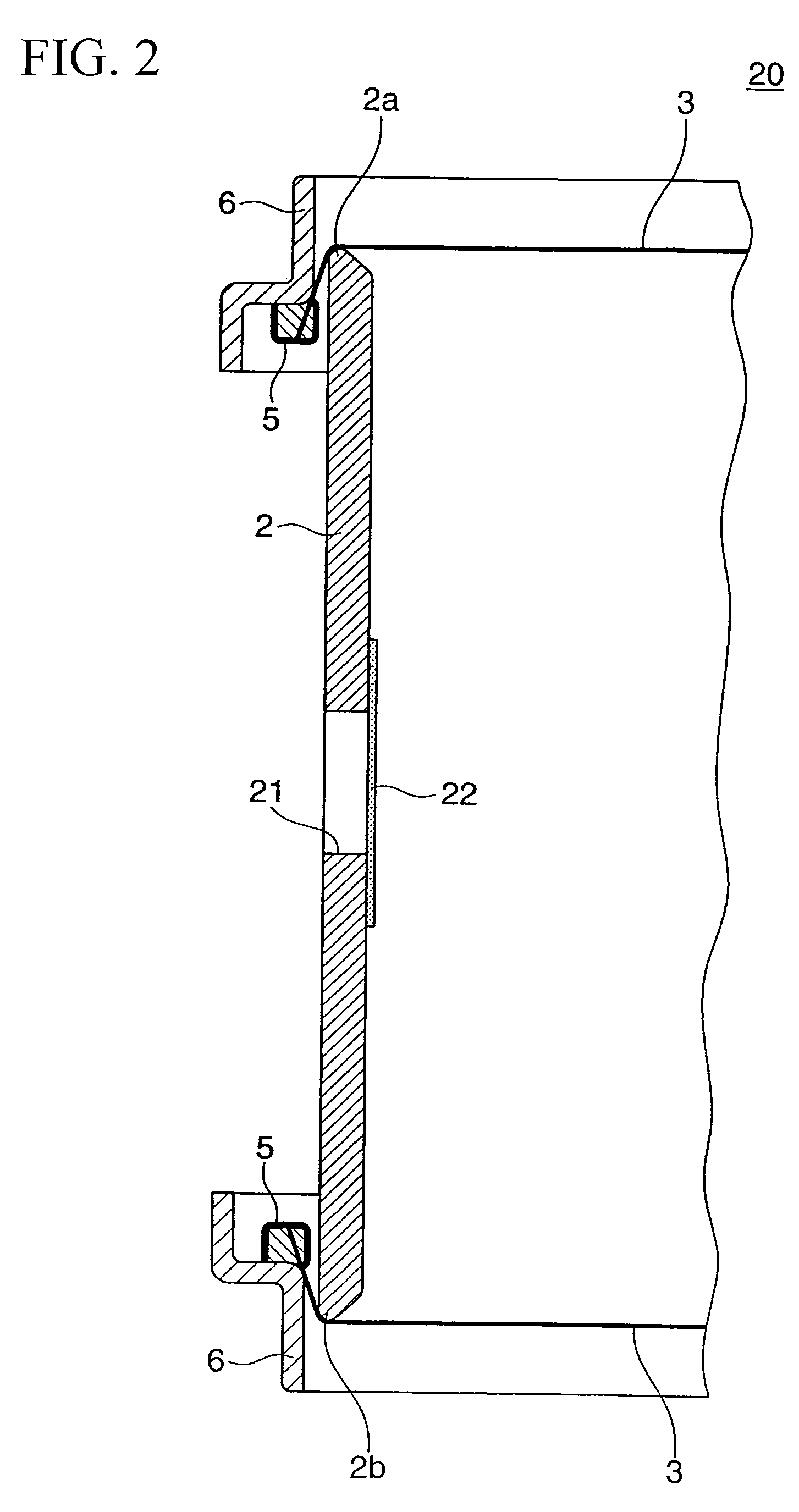Drum
a drum and drum head technology, applied in the field of drums, can solve the problems of inability to produce a sharp drum sound, inability to last for a long time, and relatively high loss of vibration energy
- Summary
- Abstract
- Description
- Claims
- Application Information
AI Technical Summary
Benefits of technology
Problems solved by technology
Method used
Image
Examples
first embodiment
1. First Embodiment
[0044]FIG. 1 is a front view of a snare drum 20 in accordance with a first embodiment of the present invention, and FIG. 2 is an enlarged cross-sectional view showing essential parts of the snare drum 20, wherein parts identical to those shown in FIG. 5 are designated by the same reference numerals.
[0045]The overall constitution of the snare drum 20 is basically identical to that of the snare drum 1 shown in FIG. 5 except that tone color change members 22 are fixed to air holes 21, which are formed at prescribed positions on the exterior surface of the drum shell 2 having a cylindrical shape and which establish communications between the inside and the outside of the drum shell 2. In the snare drum 20 of the first embodiment, the air holes 21 are formed in the circumferential direction of the drum shell 2 with prescribed distances therebetween. Of course, it is possible to modify the snare drum 20 to provide only a single air hole 21. It is possible to appropriate...
second embodiment
2. Second Embodiment
[0056]FIG. 3 is a front view showing the exterior appearance of a snare drum 30 in accordance with a second embodiment of the present invention. FIG. 4 is an enlarged cross-sectional view showing essential parts of the snare drum 30 shown in FIG. 3.
[0057]The snare drum 30 is formed using a drum shell 31 constituted of shells 31A and 31B, which are divided in an axial direction. The shells 31A and 31B are interconnected together by means of a plurality of lugs 7 (each composed of one piece) and strainers 10, which are attached across openings 33a (positioned opposite to openings 33b, across which the drumheads 3 are stretched), in such a way that their axial lines substantially match each other. Distal ends of each lug 7 are attached to the exterior surfaces of the shells 31A and 31B by means of bolts 34, which are screwed inwardly to run through the shells 31A and 31B at prescribed positions. The drumheads 3 are stretched under tension on the openings 33b positio...
PUM
 Login to View More
Login to View More Abstract
Description
Claims
Application Information
 Login to View More
Login to View More - R&D
- Intellectual Property
- Life Sciences
- Materials
- Tech Scout
- Unparalleled Data Quality
- Higher Quality Content
- 60% Fewer Hallucinations
Browse by: Latest US Patents, China's latest patents, Technical Efficacy Thesaurus, Application Domain, Technology Topic, Popular Technical Reports.
© 2025 PatSnap. All rights reserved.Legal|Privacy policy|Modern Slavery Act Transparency Statement|Sitemap|About US| Contact US: help@patsnap.com



